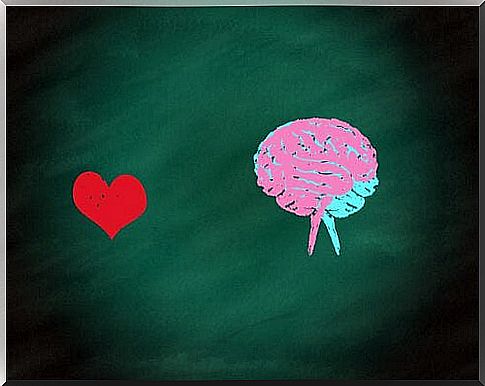A Reflection Of Our Own Lies

These are decisions made with the mind or the heart, whether true or false.
It is an eternal duality which invades our life and our thoughts, and which originates in Greek philosophy and in particular Aristotle. The contributions of this philosophy to Greek thought have earned him the qualification of “The Philosopher”.
However, we could speak of this same thinker and call him “The Scientist” because Aristotle established one of the first solid foundations of science: to arrive at the truth by means of observation and experimentation and not based on abstract reasoning.
Aristotle considered the heart to be the most important organ of the human being, before the brain.
For the Greek philosopher, it is the heart, and not the brain, which is the director of sensations and movements, the place where all the information we receive from those around us arrives and from which the response to it is born. universe that is next to our skin.
Aristotle’s reasons for considering the heart as the directing center of our behavior are diverse and in accordance with the knowledge of the time. According to his writings, we can cite the following reasons: the heart occupies a central place in the body and is sensitive to emotions.

On the other hand, Aristotle maintained that the heart beat faster in the face of such and such a sensation while the brain did nothing .
He claimed that if we opened up a skull and exposed the brain, you could cut parts of it without the living being suffering, when the heart is bound to be severely damaged in a similar procedure.
Self-deception is a common trait in human beings. Our brain knows what is going on, but a series of mechanisms set in motion, and create a parallel reality full of lies, which we end up believing through repetition and insistence.

In a study published in the journal Plos One, it is claimed that people who betray themselves are the ones who betray others the best.
This study was carried out by several British universities (University of Newcastel, Queen Mary London, Exeter and University College London). The researchers analyzed a group of students who had just returned to college and who did not know each other at all.
The researchers assembled a group of students, and asked them to rate each other as well as themselves with a mark. They noticed that the people who scored the highest were rated higher by others, regardless of their actual level of performance. Six weeks later, the experiment was repeated and the same results were obtained.
Can self-deception be beneficial?
According to Robert Kurzban, evolutionary psychologist at the University of Pennsylvania and author of the book Why Everyone else is Hypocrites , living in error may not be as bad as it seems, especially for one species. social like the human species. Maybe the lies we tell ourselves sometimes have a real function …

Robert Kurzban starts from two basic ideas. On the one hand, it takes into account that the mind is made up of different parts and modules. It is easy to understand that we can believe in a lot of contradictory things, from a point of view of perception to that of morality.
On the other hand, there is a world outside but our brain is dedicated to interpreting our experience: we do not have access to reality but to what our brain interprets of reality.
According to Kursban, we are evolved creatures and evolution is a competitive process. We have evolved to compete with what surrounds us, we have learned to deceive and construct lies . Part of that competitiveness is convincing others of things that are not certain.
There are different ways of deceiving oneself by telling lies but the question we must ask ourselves is: “Is it myself betraying myself” or “Am I in the process of deceiving myself in an interesting way? ”. Having false beliefs can be helpful in convincing others to believe in something that interests us, and thereby gain benefits.







